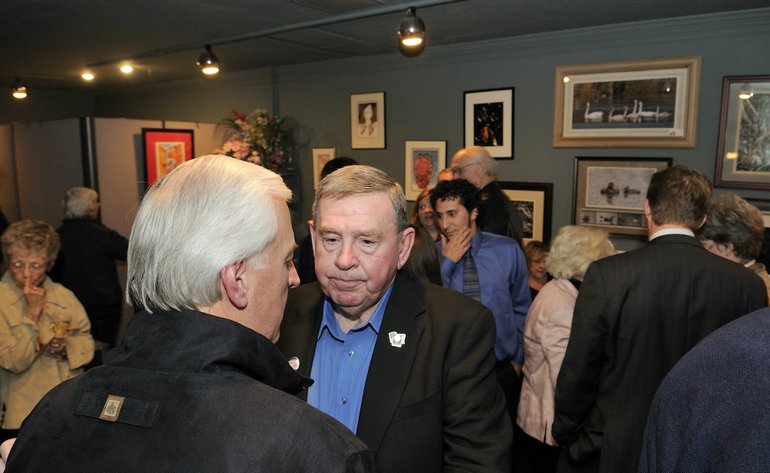Five Clark County mayors have added their voices to a growing statewide cacophony urging Gov. Chris Gregoire to scrap plans to eliminate state-shared revenue from liquor sales.
Vancouver Mayor Tim Leavitt, Camas Mayor Scott Higgins, Ridgefield Mayor Ron Onslow, Washougal Mayor Sean Guard and Yacolt Mayor James Weldon joined 110 other Washington mayors in signing a letter delivered to Gregoire’s office Wednesday. Battle Ground Mayor Mike Ciraulo and Woodland Mayor Chuck Blum said they had not heard about the letter.
The letter penned by the Association of Washington Cities calls Gregoire’s proposed cuts “intolerable” and lambastes her decision to end the state’s 70-year-old practice of distributing liquor tax money to cities and towns. Neither the letter’s contents nor timing are tied to Initiative 1183 to privatize liquor sales, AWC officials said.
Gregoire is aware of the mayors’ concerns, but a $2 billion state deficit has left her with few options, spokeswoman Karina Shagren said.
“Mayors are not the only people angry,” Shagren said. “We’re hearing from people losing health care. We’re hearing from teachers with increased class sizes. You name the stakeholder group and they’re not happy.”
Meanwhile, AWC representatives and the mayors who signed the letter believe more negotiations are needed to reduce the hit cities and towns would take under Gregoire’s plan. Abolishing state-shared revenue from liquor sales would remove up to $52 million per year from the budgets of cities and towns statewide, said Dave Williams, AWC’s director of state and federal relations.
“The cities are not going to be immune to reductions,” Williams said. “The scope of the reductions and where the reductions occur are something we need to have discussed.”
AWC circulated the letter to 281 mayors and their clerks Monday. The letter hand-delivered to Gregoire’s office contained 115 signatures from mayors who represented around 78 percent of the state’s incorporated population, Williams said.
Washougal’s Guard called the number of signatures on the letter “unprecedented” and added it “speaks volumes on how important the issue is to us on the city level.”
Washougal receives around $200,000 from state-shared revenue each year, with the largest portion from liquor sales, Guard said. The majority of the money received from the state goes to law-enforcement endeavors, he added.
“We’re not going to have a lot of places in our budget that are not going to suffer from losing $200,000,” Guard said. “And we’re in better shape than most cities are.”
In an email sent to The Columbian, Vancouver’s Leavitt wrote he was “distraught” at the potential for cuts to state-shared revenue. However, he expressed hope middle ground would be found.
“I’m sure the governor has now heard loud and clear that taking away state-shared revenue from liquor sales is going to be counterproductive for our citizens on ground level,” Leavitt wrote. “It’s going to create more challenges for us to provide those boots on ground — police, fire, public works and road maintenance — efforts.”
Ciraulo said he would have signed the letter had he known about it.
“I’m not happy about the cuts either, but I wasn’t aware of (the letter),” he said.
Blum described the letter’s existence as “news to me.”
La Center Mayor Jim Irish was the only other Clark County mayor who did not sign the letter. He did not return a phone call Thursday afternoon.
Staff writer Andrea Damewood and The Associated Press contributed to this report.



